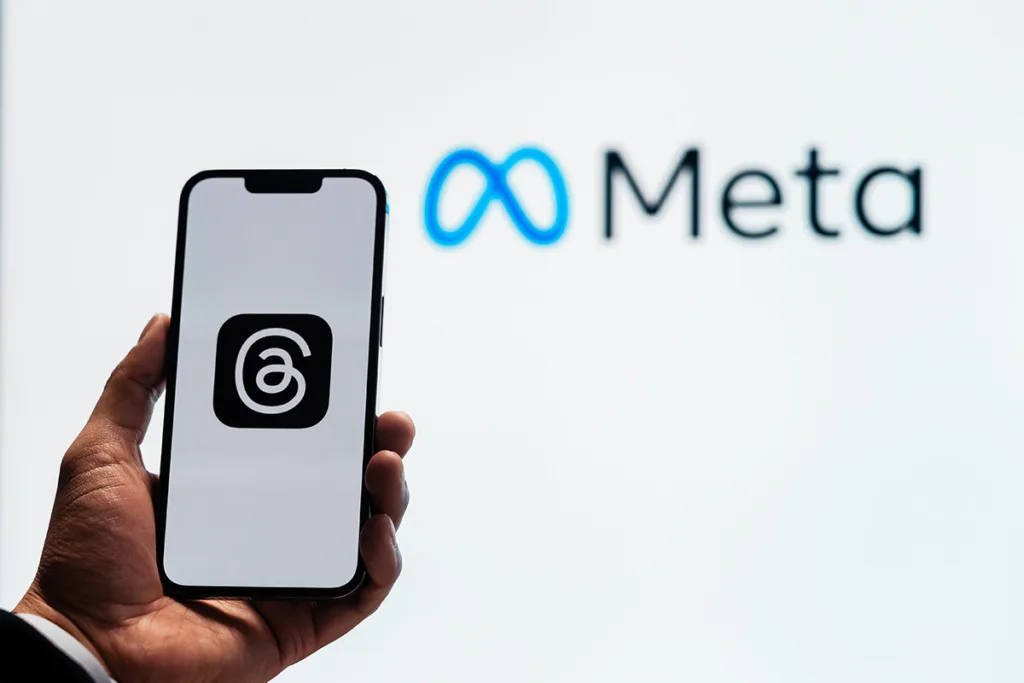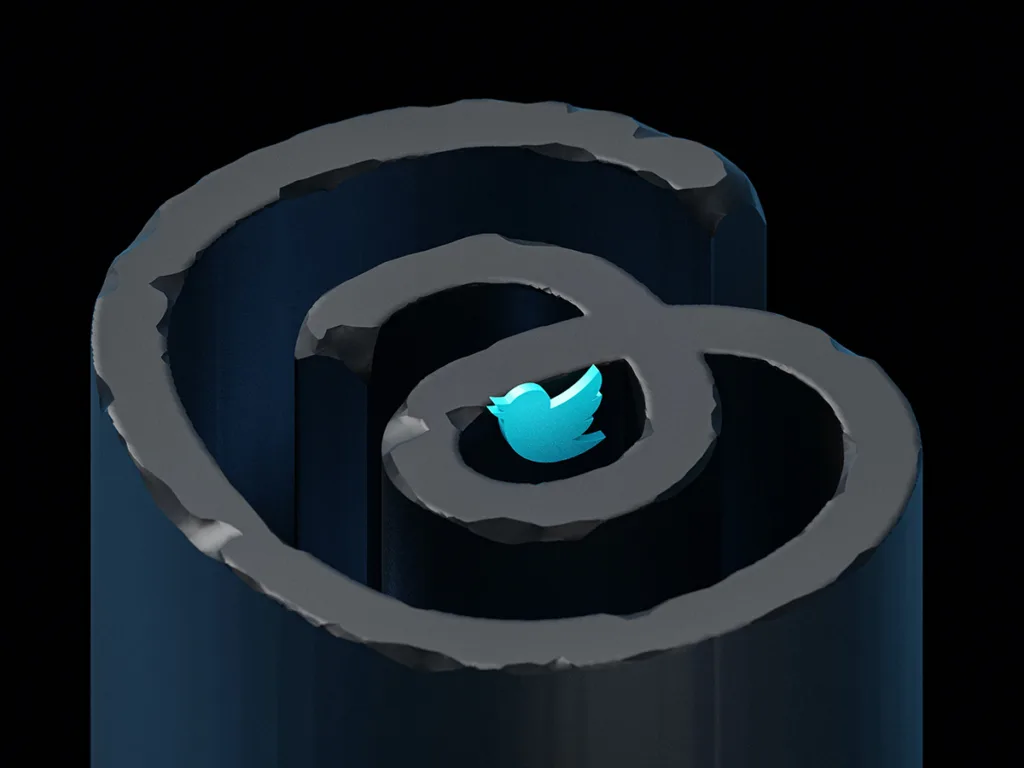Introduction: The Dawn of a New Social Media Era
In the dynamic world of social media, innovation is the name of the game. Meta, the tech conglomerate formerly known as Facebook, has recently launched a new app called Threads. This text-sharing platform is not just another addition to the social media landscape; it’s a game-changer that’s already causing ripples across the industry. With its unique features and controversies, It is a hot topic among users, industry leaders, and even Twitter’s Elon Musk. This article will delve deeper into the world of Threads, providing an in-depth analysis of its features, user experiences, and the impact it’s making on the social media landscape.
Threads: A Revolutionary Approach to Social Media… or is it?

It is not just another social media app; it’s a revolutionary platform that’s redefining how we communicate and share content online. With its text-based format, it offers a unique way for users to share their thoughts, ideas, and experiences. The app is designed to be user-friendly, with an intuitive interface that makes it easy for users to navigate and share their thoughts.
Threads is linked to Instagram, allowing users to follow accounts they are already interested in on the photo-sharing platform. Users can share their point of view in thread-like posts that appear very similar to tweets. The app has been off to a remarkably strong start, topping 100 million users in a matter of days following its debut. Meta CEO Mark Zuckerberg has stated that “tens of millions of people now come back daily,” indicating a high level of user retention despite initial reports of usage decline.
Remember I mentioned “similar to tweets”? Now there’s the catch. According to many, Meta’s new app is a rip off of Twitter built in retaliation to Elon Musk!
User Engagement: The Ups and Downs
Like any new platform, Threads has experienced its share of ups and downs. After an initial surge in user engagement, reports suggest that daily active users on Threads dropped from 49 million to 23.6 million in just a week’s time. However, Zuckerberg has positioned the app’s engagement numbers as a win, not a loss, stating that the numbers are well ahead of what the company expected.
Despite these fluctuations, it is showing promising signs of long-term user engagement. The app’s unique features and user-friendly interface are attracting a diverse range of users, from social media enthusiasts to industry leaders. As Threads continues to evolve and improve, it’s likely that we’ll see even more growth in user engagement.
The Spam Bots Issue: A Challenge and a Response
Threads, like many other social media platforms, has faced challenges with spam bots. In response to this issue, Meta has implemented rate limits to curb the influx of spam. This move, however, has been met with criticism, particularly from Twitter owner Elon Musk, who called the rate limits “oppressive” and a “copycat” move. Despite this criticism, Meta remains committed to providing a safe and enjoyable user experience, and is continuously working on measures to combat spam and other forms of misuse on the platform.
Elon Musk’s Critique: A Fuel to the Fire
Elon Musk, the outspoken CEO of SpaceX and Tesla, has not shied away from expressing his thoughts on Threads. Musk’s critique of the app’s rate limits and his accusation of it being a “copycat” of Twitter have added fuel to the fire of competition between the two platforms. This rivalry has sparked a debate in the tech community, with many questioning whether Threads can truly compete with established social media platforms like Twitter.

Account Deletion: A Controversial Feature
One of the most controversial features of Threads is the fact that users cannot delete their Threads account without also deleting their Instagram account. This feature, which is due to the intertwined nature of the two platforms, has sparked a wave of complaints from users. Many have expressed concern over the permanence of their Threads profiles and the potential implications for their Instagram accounts. Despite these concerns, Meta has stated that they are looking into ways to allow separate account deletion on Threads.
Threads and Decentralization: A New Frontier or a False Promise?
In a surprising move, Meta has announced plans to make Threads interoperable with other non-Meta social networks that support a decentralized protocol already used by WordPress and Mastodon, known as ActivityPub. This means that if Meta follows through, users will be able to see and interact with Threads content from other platforms and services that support the standard. This move towards decentralization is seen as a significant shift in Meta’s approach, given its history of centralized control over its platforms.
However, this promise of decentralization has been met with skepticism. Given Meta’s checkered history with data mining and privacy concerns, many privacy-minded social media users are questioning whether a product by Meta can ever truly be decentralized. Critics argue that while Threads may adopt the mechanics of a decentralized system, the control and governance of the platform may still remain centralized.
Moreover, there are concerns about what has been termed as “social graph slurping.” If Threads emerges as a massive player in the decentralized social media landscape, Meta will know who all of its users interact with and follow within Threads, and it will also be able to see who its users follow in the broader decentralized social media landscape. This could potentially give Meta a fairly expansive view of interactions beyond its borders, raising further privacy concerns.
Privacy Concerns: A Major Hurdle
Privacy has been a major concern for users when it comes to social media platforms, and Threads is no exception. The app’s listing on Apple’s App Store includes details about the user data the app is designed to collect and track, listing a whopping 14 categories of data that “may be collected and linked to your identity.” This has raised eyebrows among users and critics alike, who are wary of Meta’s data-gobbling ways.
Despite these concerns, Meta has stated that they are looking into ways to allow separate account deletion on Threads, and the company has also sketched out details of the plan in its supplemental privacy policy for Threads. However, it remains to be seen how these plans will be implemented and whether they will be enough to assuage users’ privacy concerns.
Conclusion: The Future of Threads
Threads is more than just a new social media app; it’s a revolutionary platform that’s changing the way we communicate and share content online. Despite the challenges and controversies it has faced, Threads has shown promising signs of long-term success. With its high daily return rate, innovative features, and the backing of Meta, Threads has the potential to become a major player in the social media landscape.
As Threads continues to evolve, it will be interesting to see how it navigates the challenges and opportunities that lie ahead. Will it be able to compete with giants like Twitter? Will it be able to address user concerns and improve its features? Only time will tell. But one thing is certain: Threads is a platform to watch, and its impact on the world of social media is just beginning.
